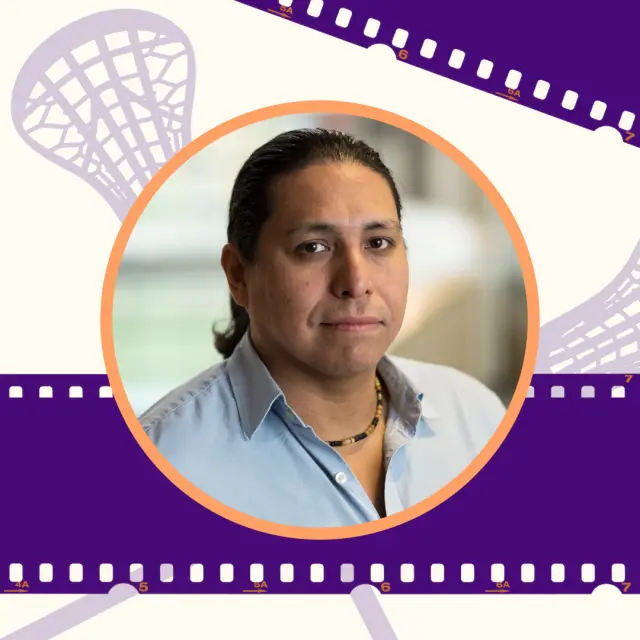Indigenous Lacrosse Player Explores Cultural History of Sport
Neal Powless, former All-American and professional lacrosse player who coaches a European national team, came to campus on April 29 to discuss the cultural relevance of lacrosse following a screening of the film “Crooked Arrows.”

Former professional lacrosse player and cultural consultant for the 2012 sports drama film “Crooked Arrows” Neal Powless led an open discussion about the Indigenous roots of lacrosse following a screening of the film in Lipton Lecture Hall on April 29.
The film, set in upstate New York, narrates an Indigenous high school lacrosse team’s journey from the bottom of the league to state champions. It traces the coach and tribe’s efforts to win the lacrosse championship, which they believed was a gift from “the Creator.” The film highlights close family relationships and the communal aspect of lacrosse, as well as the origins of the sport, which has been played in various forms by Native Americans for centuries.
The event was organized by the Native and Indigenous Students Association (NISA) and the men’s and women’s lacrosse teams.
Powless, the first Indigenous head coach of the Dutch national box lacrosse team, was a three-time All-American at Nazareth College, and played for seven years professionally, competing in six World Lacrosse Championships. He advised the directors of “Crooked Arrows” in their portrayal of Indigenous communities and their relationship with lacrosse. Powless joined the team after a group of producers attended one of his practices at Onondaga Nation Arena. They had intended to hire players for the film, but ultimately recruited Powless to provide an Indigenous perspective on the script and other directing elements.
Powless recalled fighting to eliminate stereotypes from the script.
He described pushback “every day from everyone” about the portrayal of different aspects of tribal culture and life. He submitted “nine major changes,” refusing to move forward without their implementation. The changes ranged from costume alterations, to changes to storylines about the indigenous teams, to direct script edits.
The ultimate goal, he said, was for “Indigenous kids to watch [the film] and see that [the filmmakers] care about their language and culture.” Additionally, he wanted to have the actors “return home with their heads held high as Indigenous people.”
Campbell Moriarty ’24, a women’s lacrosse player, said that she “was most impacted by [Powless’] discussion of the film’s versatility in having Indigenous and non-Indigenous story arcs.”
“I thought it was interesting that creating a film for both audiences was of extreme importance for him,” she said.
The event and discussion concluded on a note of anticipation: Powless spoke about his excitement for the inclusion of lacrosse in the 2028 Olympics, where he will coach the Dutch national team.





Comments ()